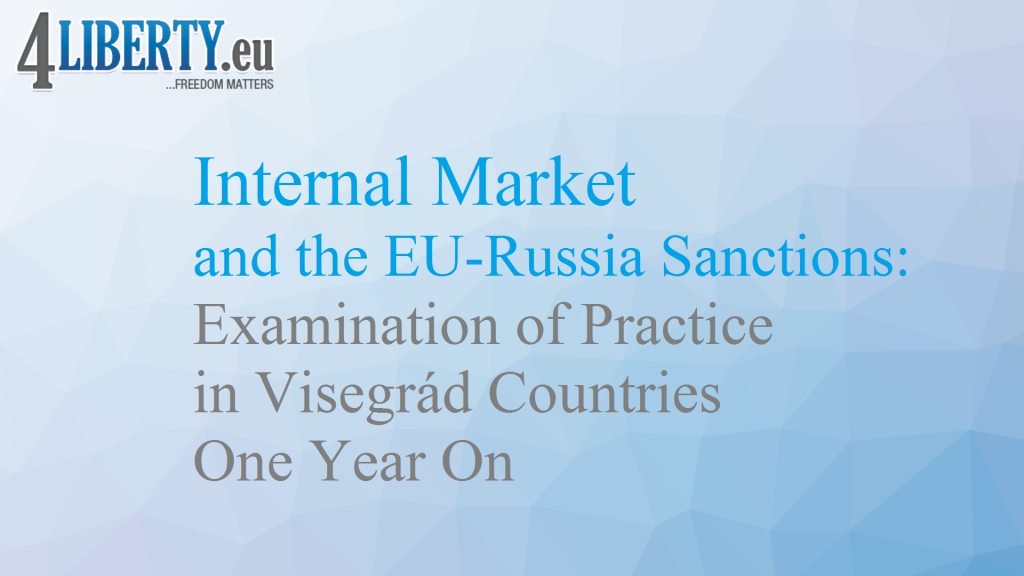We have the pleasure the present you the third of the series of our policy papers that we will be publishing in the near future. The publication discusses the issue of Internal Market and the EU-Russia Sanctions and examines experience of Visegrad Countries one year on. Enjoy your reading!
Executive summary
This paper focuses on the impact of the EU – Russia sanction regime on the four countries of the Visegrad Group. In the short term the most visible impact was in the sector of agricultural production due to the Russian food ban. A deeper and longer impact could be connected with the overall deterioration of the Russian economy, the decline of its purchasing power and the larger changes in the Russian society and business environment.
The analysis of the impact of the Russian food ban on the Visegrad Group countries must distinguish between the direct impact and the indirect impact. Poland was, after Lithuania, the second Western country most directly hurt by the Russian food ban. The direct impact on Hungarian exports of agricultural products is somewhere between the heavy damage to Poland and the almost negligible direct impact in the case of the Czech Republic and the Slovak Republic. The food ban resulted in the collapse of apple prices in Poland and also damaged other sectors such as mushrooms or tomatoes. Poland was also the only V4 country seriously affected in cheese exports. In the case of Hungary, the pork and poultry sectors were hit especially hard.
The whole EU internal market with agricultural products was, however, hit by the indirect impact of oversupply, in particular with meat and fruits. This influenced agricultural producers in all V4 countries. The EU responded with market interventions for perishable fruit and vegetables, a scheme to aid private storage for butter and skimmed milk powder and exported cheeses and to increase the financing of promotions of agricultural products and the search for new markets.
The following noticeable trends in response to the sanction regime were identified. Hungary is seeking markets in the East, including Russia, despite the sanctions. Slovakia was successful in the process of the formulation of the EU sanctions so that they exclude Russian owned financial institutions based in the EU and later used the sanctions as a useful justification for national production preferences that were considered even before the sanctions. Poland was the most damaged by the Russian food ban and fought strongly for higher EU support and also was among the countries that employed the most of the financial resources provided at the EU level. The Czech Republic adopted several measures so it would not lose the Russian market before its exporters could find new markets elsewhere.
Download the full pdf here: Internal Market_EU_Russia_Sanctions



